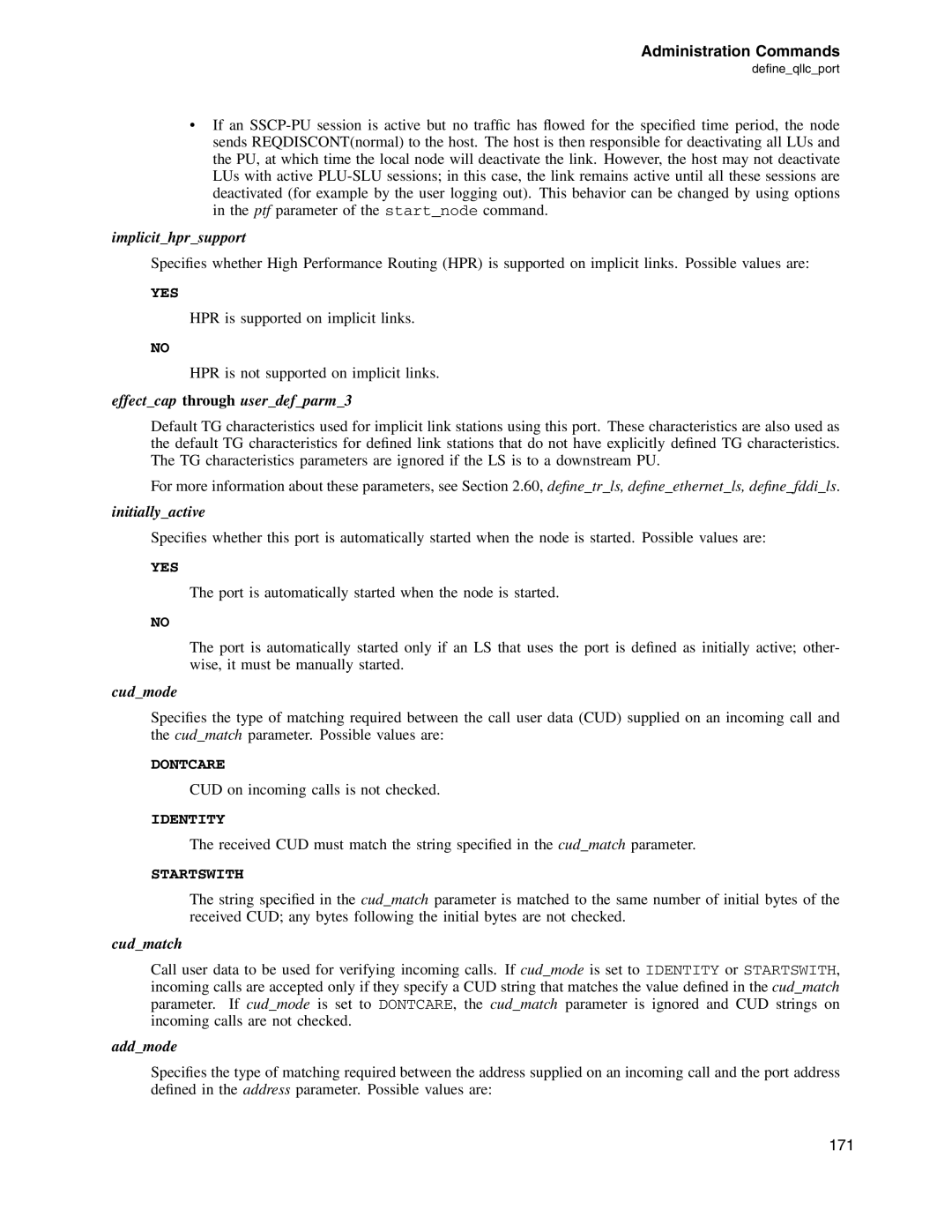Administration Commands
define_qllc_port
•If an
implicit_hpr_support
Specifies whether High Performance Routing (HPR) is supported on implicit links. Possible values are:
YES
HPR is supported on implicit links.
NO
HPR is not supported on implicit links.
effect_cap through user_def_parm_3
Default TG characteristics used for implicit link stations using this port. These characteristics are also used as the default TG characteristics for defined link stations that do not have explicitly defined TG characteristics. The TG characteristics parameters are ignored if the LS is to a downstream PU.
For more information about these parameters, see Section 2.60, define_tr_ls, define_ethernet_ls, define_fddi_ls.
initially_active
Specifies whether this port is automatically started when the node is started. Possible values are:
YES
The port is automatically started when the node is started.
NO
The port is automatically started only if an LS that uses the port is defined as initially active; other- wise, it must be manually started.
cud_mode
Specifies the type of matching required between the call user data (CUD) supplied on an incoming call and the cud_match parameter. Possible values are:
DONTCARE
CUD on incoming calls is not checked.
IDENTITY
The received CUD must match the string specified in the cud_match parameter.
STARTSWITH
The string specified in the cud_match parameter is matched to the same number of initial bytes of the received CUD; any bytes following the initial bytes are not checked.
cud_match
Call user data to be used for verifying incoming calls. If cud_mode is set to IDENTITY or STARTSWITH, incoming calls are accepted only if they specify a CUD string that matches the value defined in the cud_match parameter. If cud_mode is set to DONTCARE, the cud_match parameter is ignored and CUD strings on incoming calls are not checked.
add_mode
Specifies the type of matching required between the address supplied on an incoming call and the port address defined in the address parameter. Possible values are:
171
